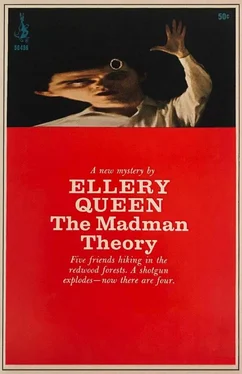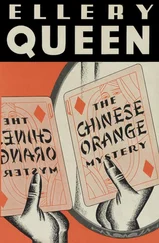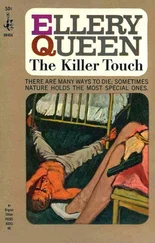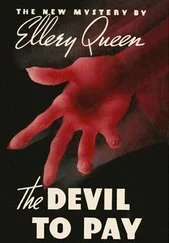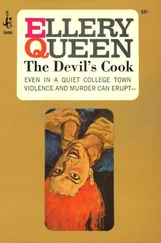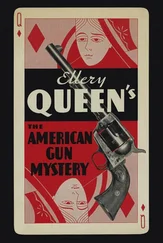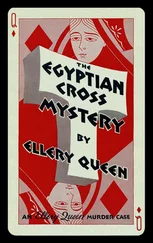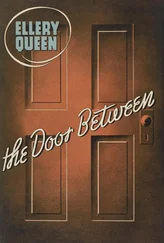“Sure I know Steve. Nice fella.”
“When was he around last?”
“Best part of a month. He give me a tip on a horse; I didn’t bet. The horse paid 15 to 1. I just about like to die.”
“Would that have been two weeks ago?”
“Yeah. Just about two weeks.”
“Did Steve play with the band that night?”
The guitarist tilted his blond head back in an easy laugh. “No, Steve was busy bending the elbow and making out with the girls. His friend was drunk. I never saw a man so drunk.”
“Oh? Who was the friend? Incidentally, have a drink.”
“I never say no. Bourbon and soda. Who was Steve’s friend? That I don’t know.”
“What did he look like?”
“I hardly noticed him. Man, was he smashed. A stretcher case. I seen drunks and I seen drunks. They all look alike.”
The guitarist talked on, describing drunks he had known, their particular and peculiar habits. Collins learned no more about Ricks. The guitarist returned to the stand.
Collins watched the time carefully. At five minutes to nine he went outside to the phone booth to get his apparatus going. Then he returned to his place at the bar.
At nine o’clock the Western Union messenger entered. He went up to a waitress, was directed to Molly, and handed her a letter.
Molly went to the side of the room and opened the letter. She withdrew a five dollar bill, at which she stared in surprise. Then she read the letter. Collins knew the contents; he had written it himself:
Dear Molly:
This five will have to do; I can’t go any more at just this time, being strapped and with many expenses. But I definitely want you to keep my name out of things. I understand the cops are going to crack down hard and talk about an accessory-to-murder rap. Don’t pay any attention. They may rave and threaten, but don’t let it worry you; they can’t do anything. I know I got a good friend in you, and that you wouldn’t let a friend in for trouble. I’m flying over to Honolulu for a week or two; it’s something I’ve promised a certain somebody a long time, which is why I’m strapped. You know how it is. Incidentally, if you ever call me again, use the pay phone; they may tap your line trying to learn my name.
Collins watched with a faint grin as Molly read the letter. When she had finished, she turned an unbelieving look at the five dollar bill and re-read the letter. Her sharp chin thrust forward. For a moment she stood by the wall in thought, then she turned and marched through the bar, passing not six feet from Collins. Her teeth were glittering in a grimace of anger.
Molly marched out to the phone booth.
Collins rose and went to the door. The woman had her back turned. He walked over to his car.
Molly dialed a number, waited impatiently, then spoke with vehemence. She hung up, flung open the door, and strode back inside the cabaret.
Collins waited five minutes, in case she thought of another phone call. Then he strolled over to the booth. From underneath the shelf he detached the small tape-recorder he had stuck there, switched it off, and took it back to his car.
He rewound the tape and listened to the playback. First he heard the scrape and rattle of Molly’s entry into the booth, the thud of the doors closing. Coins clinked; the double gong of the ten-cent register sounded, followed by a series of clicks.
After a pause came the faint rasp of a voice. Molly spoke: “Look here. This is you-know-who.” The other voice rasped in query.
“It’s Molly, if you’ve got to have it in black and white. I just got your letter and, boy, you couldn’t be more wrong! If you think you can give me a measly five-buck payoff to cover up for you, my friend, you are so far off base I could die.”
The voice rasped in wonderment. Molly warmed to her subject. “The nerve, five bucks, while you go merrily off to Honolulu with some floozie, and my feet hurting so I can hardly stand it jumping these tables. I’m telling you, bud, that crummy five-spot isn’t even a teaser. It’s an insult. What do you take me for, some stupid little jerk?”
The voice at the other end of the wire expostulated. Molly ignored the protests. “You’ll have to do a whole lot better, my friend, because I’m nobody’s patsy. And don’t think I’m not watching out for myself, because I am. I hope I make myself clear? I mean, don’t get any ideas.”
There was a thud as Molly viciously hung up the receiver, the rattle of the door, then silence.
Collins played the tape once more. Then pleased with himself, he started back to Fresno.
Collins could well have taken Sunday off except for curiosity, which all night had visited him with near-physical pangs. So now, at nine thirty, with the laboratory deserted, he re-recorded the tape from the portable recorder into an Ampex at fifteen inches a second. Then he played back the tape at three and three-quarter inches per second, the sounds reduced four octaves in pitch. The door-closing became a groan. Molly’s change being placed on the shelf made a sound like far-off cowbells. Two deep reverberations echoed and boomed as she dropped the dime into the slot, some seconds later there came a noise like a stick on a picket fence, followed by tunk tunk tunk.
“Three,” said Collins, and made a note.
Presently another rattle, then tunk tunk tunk tunk tunk tunk.
“Six,” said Collins.
And next: “Three.”
Finally he had the number which Molly had dialed. 363-2210.
He returned to his office, looked through his notes. Nowhere did he find such a number. He picked up his phone, dialed the San Jose exchange, then 363-2210.
At the other end of the connection the bell rang, but no one answered. Collins hung up.
Bigelow appeared in the doorway, resplendent in a dark blue suit, white shirt, and gray silk tie. Collins had telephoned him the night before about the success of the ploy, and curiosity evidently had been eating at Bigelow, too.
“On my way to church,” the captain said rather sheepishly, looking away from Collins’ raised eyebrows. “What did you make from the tape?”
Collins tossed him a sheet of paper. “That’s the number.”
“Who is it?”
“I don’t know yet. Nobody home.”
“It might be a business number.”
“I don’t think so. Molly called in the evening.”
“True. You’d better make another trip up to San Jose. Then when somebody answers the phone, you’ll be on the spot to ask some questions.”
“That makes sense,” said Collins hollowly. “I might as well move to San Jose. I practically live there now.”
“It’s a nice climate,” said Bigelow, so soberly that Collins looked at him. What did he mean by that?
“I’ve pulled Sullivan and Kerner out of the park,” said Bigelow. “They didn’t get a nibble in the campgrounds. Too many people coming and going.”
“It was an off-chance,” said Collins defensively. “It might have paid off big.”
“Oh, I’m not knocking the idea,” said Bigelow. “In fact, do you have any others?”
“Just this telephone number, which I’d call our best lead so far.”
“I agree,” said Bigelow magnanimously. “Well, I better get going. The wife and kids are waiting outside.”
Collins arrived at San Jose shortly after one. He lunched at a drive-in, then crossed the street to a service station phone booth and dialed 363-2210. No answer.
He looked through the directory, checking every name and institution associated with the case.
Earl Genneman was listed once, Genneman Laboratories was listed again, and Jean Genneman also had a listing. None of these was 363-2210.
Myron Retwig had a listing, also Pacific Chemicals. Neither was 363-2210.
Читать дальше
